Trust in Tech: Navigating Emerging Technologies and Human Rights in a Connected World
International Telecommunication Union (ITU), Office of the High Commissioner for Human Rights (OHCHR), International Organization for Standardization (ISO), Association for Progressive Communications (APC)
Session 246
In our rapidly evolving digital landscape, emerging technologies are shaping our world in profound ways, offering immense opportunities for progress, but also presenting complex challenges. Moreover, technical standards play a foundational role in ensuring the interoperability, compatibility, and security of emerging technologies. As we embrace innovations such as artificial intelligence, it becomes increasingly crucial to ensure that these advancements uphold human rights and foster trust among users.
This high-level dialogue aims to foster a deeper understanding of the challenges and opportunities inherent in the intersection of technology and human rights and underscores the importance of multi-stakeholder approaches. By establishing common frameworks, standards facilitate seamless communication and interaction among devices and systems, enabling the widespread adoption and integration of emerging technologies. Therefore, a rights-based approach to technical standard-setting is essential to safeguarding human rights and promoting trust in the adoption and deployment of emerging technologies.
Let’s learn how stakeholders can build trust by working together to translate human rights into technical terms and embed human rights into technical standards.
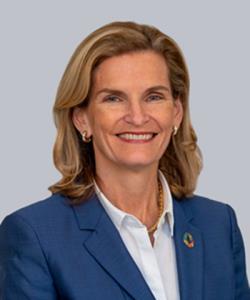
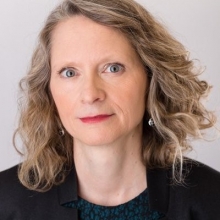
Since January 2016, Peggy Hicks has served as director of the Thematic Engagement, Special Procedures and Right to Development Division of the UN Human Rights Office (OHCHR). She provides strategic direction to the UN Human Rights Office’s work on a broad range of pressing human rights issues, including human rights in the digital age and expanding civic space. From 2005 to 2015, she was global advocacy director at Human Rights Watch, where she was responsible for managing Human Rights Watch’s advocacy team and providing direction to its advocacy worldwide. Ms. Hicks previously served as the director of the Office of Returns and Communities in the UN mission in Kosovo and as Deputy High Representative for Human Rights in Bosnia and Herzegovina. She has also worked as the Director of Programs for the International Human Rights Law Group, and as clinical professor of human rights and refugee law at the University of Minnesota Law School. Ms. Hicks is a graduate of Columbia Law School and the University of Michigan.
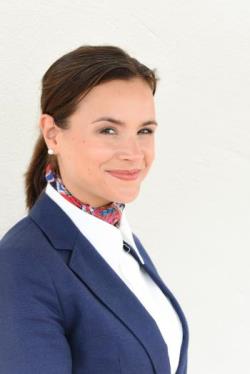
Dr. Mercedes Aramendía is the President of the Communications Services Regulatory Unit (URSEC) and the National Council of Innovation, Science and Technology (CONICYT) of Uruguay.
She holds a PhD in Legal Sciences from the University of Granada (with distinction cum laude), Spain; LLM in Law, Technology and Entrepreneurship from Cornell University Law School (Cornell Tech), United States; MBA from the EAE Business School, and Master in Business Management, Administration and Organization from the Camilo José Cela University, Spain; Lawyer and Master in Economic Administrative Law from the University of Montevideo, Uruguay.
She is the Professor and Director of the Postgraduate Course in Digital Transformation and Law at the University of Montevideo.
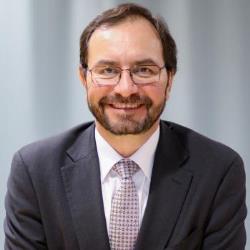
Sergio Mujica joined ISO as Secretary-General in July 2017, having spent 7 years at the World Custom’s Organization (WCO) as Deputy Secretary-General. The WCO aims to enhance the effectiveness and efficiency of Custom’s administrations worldwide, and within this role Mr Mujica was responsible for the design and implementation of the WCO’s strategic plan. This included simplification, harmonization and standardization of custom’s procedures in addition to capacity building initiatives aimed at the WCO members. This gave him significant experience in an international setting, building consensus within a large membership-based organization.
Prior to working at the World Customs Organization, Mr Mujica spent 15 years working for the Government of Chile with the Ministry of Agriculture, the Ministry of Economic Affairs and as the Director General of Chile Customs. A Chilean national, he has a law degree from the Pontificia Universidad Catolica de Chile and a Master’s degree in International Law from the American University in Washington DC.
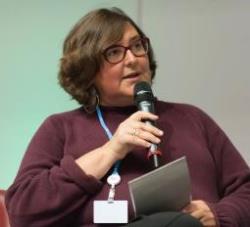
Anriette Esterhuysen served as the chairperson of the Multistakeholder Advisory Committee of the United Nations Internet Governance Forum (IGF) from 2019 to 2021. Prior to that she was executive director of the Association for Progressive Communications (APC) a global civil society network which played an active role during the WSIS. She continues to work with APC as Senior Advisor on Internet Governance. She served on the Bildt Commission on Internet Governance and the Global Commission on the Stability of Cyberspace. Currently she is a member of the Aspen Global Cyber Group and serves on the boards of the IGF Support Association, Connect Humanity, and the South African Tertiary Education Network (TENET). Anriette was inducted into the Internet Hall of Fame as a Global Connecter in 2013 for her work in extending internet connectivity in Africa and received the Electronic Frontier Foundation Pioneer Award in 2015 for her work with the APC on defending and promoting human rights online. She is South African and based in Johannesburg.
.jpg?maxwidth=250)
Amb. Prof. Muhammadou M.O. Kah is the Ambassador of The Republic of the Gambia to the Swiss confederation & Permanent Representative to the UN Office at Geneva, World Trade Organisation (WTO), and other international organizations at Geneva, Switzerland. Amb. Prof Kah served as the past Chairman of the Africa Group of Ambassadors at Geneva (April 2021- to September 2021) and currently the Vice President (Africa) for the United Nations Human Rights Council; Vice Chairman for UNCTAD’s Commission on Science and Technology Development’s 25th session and a member of the Advisory Board of the UNCTAD Trade and Development Bureau (TDB) Advisory Body (June 2021-July 2023).
Prior to his appointment in Geneva, Amb. Prof. Kah served as the Founding Chairman of Zenith Bank, The Gambia, Chairman of the Board of Directors, Africa Consulting & Trading Group (ACT), Dakar, Senegal; Board membership: Malabo Montpelier Panel; African Agriculture Technology Foundation; Africa Europe Foundation and ReEnergy Africa. He also served as Board Member for over 10 years of the African University of Science and Technology, Abuja, Nigeria; served as a Board member of the Nigerian Communications Commission’s (NCC) Digital Bridge Institute, Abuja, Nigeria.
Completing his BSc, MSc. and Ph.D. at the Stevens Institute of Technology, Hoboken, New Jersey. In 2016, Amb. Prof. Kah was awarded an Honorary Doctoral Degree - Doctor of Science (Honoris Causa) by the University of The Gambia a year after he completed his tenure as Vice Chancellor/Rector of The University. He also holds a Master of Science in Finance (Financial Engineering) from George Washington University, Washington, DC and a Postgraduate Diploma (Dip SI) in Strategy and Innovation from the Said Business School, University of Oxford, UK.
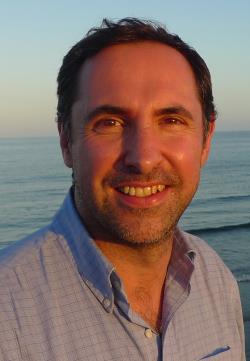
Olivier Alais is program coordinator at the International Telecommunication Union (ITU). Among other tasks, his focus is embedding human rights into ITU activities. Olivier is a former digital task team leader at the French Agency for Development. He helped design digital infrastructure programs. He also supervised an online protection program for civil society in developing countries, developed a micro insurance health program in Thailand, worked on a federal social security digital platform in Mexico, set up Internet-enabled community radio stations in Northern Mali and launched the first rural computer centers in Burkina Faso, where he also taught at university. A computer engineer, Olivier was a Fellow at Harvard's Berkman Klein Center for Internet & Society.
-
 C1. The role of governments and all stakeholders in the promotion of ICTs for development
C1. The role of governments and all stakeholders in the promotion of ICTs for development
-
 C5. Building confidence and security in use of ICTs
C5. Building confidence and security in use of ICTs
-
 C11. International and regional cooperation
C11. International and regional cooperation
-
 Goal 8: Promote inclusive and sustainable economic growth, employment and decent work for all
Goal 8: Promote inclusive and sustainable economic growth, employment and decent work for all
-
 Goal 9: Build resilient infrastructure, promote sustainable industrialization and foster innovation
Goal 9: Build resilient infrastructure, promote sustainable industrialization and foster innovation
-
 Goal 17: Revitalize the global partnership for sustainable development
Goal 17: Revitalize the global partnership for sustainable development